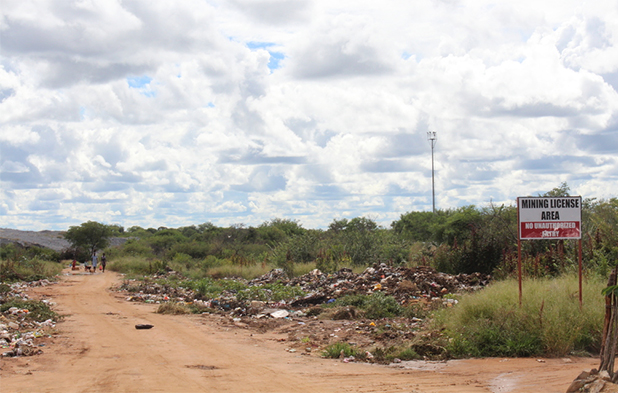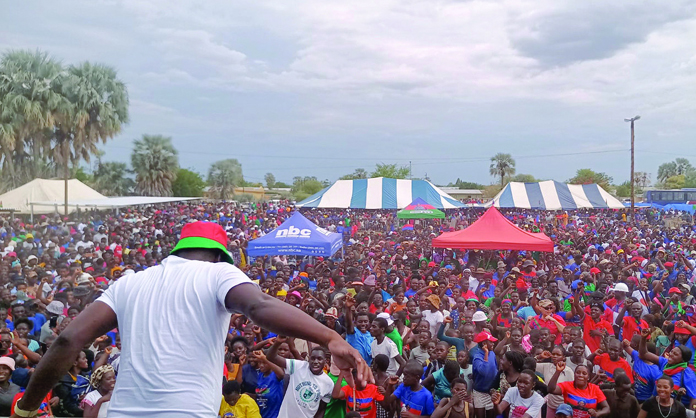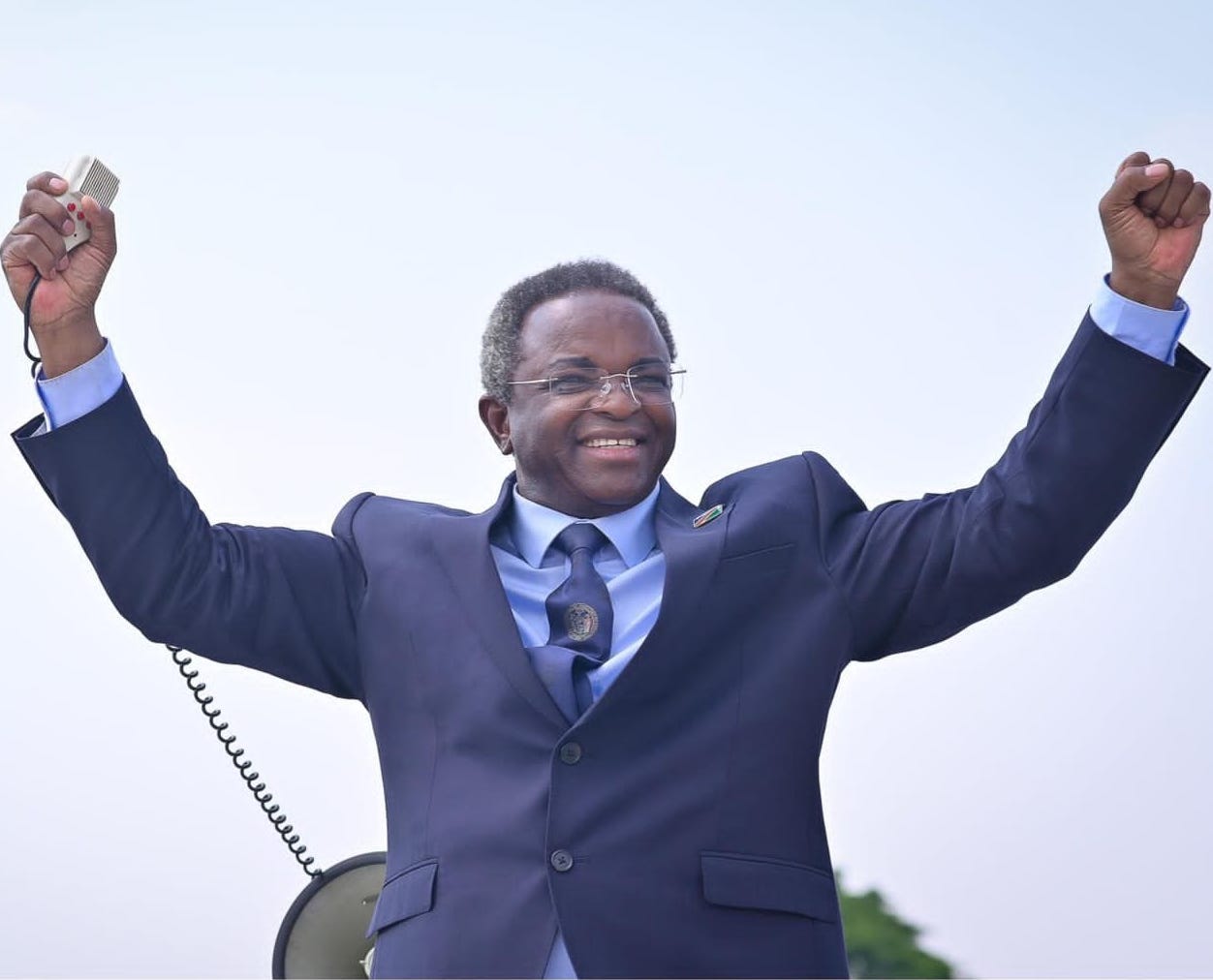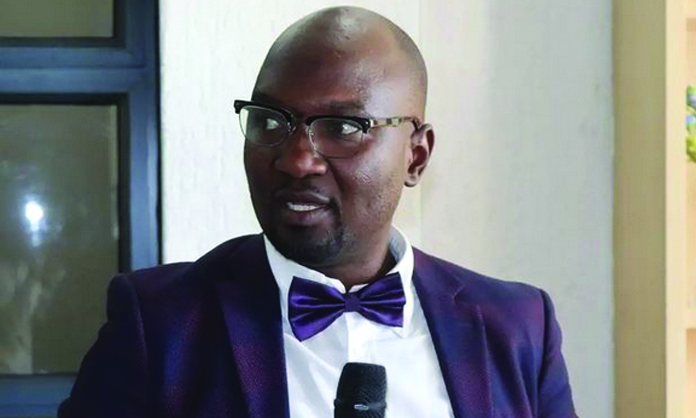THE clock strikes 06h00, and the gates open. They come in the overcast sky of the copper town. Women, men and children of all ages. They come in buses, cars and on foot, while others are on bicycles.
Most are proudly clad in their traditional attire. Namibian artist Female Donkey, clad in a shirt bearing the face of President Hage Geingob, is also present. Others have similar outfits, too. Houses along the street leading to the Oscar Norich Stadium have Swapo and national flags flying at their gates. Some cars are draped with either the Swapo or Namibian flags.
It is a beautiful day at Tsumeb in the Oshikoto region. As the crowds pour into the stadium on this Wednesday morning, a girl requests for a photo to be taken. She poses for the camera. When asked for her name, she shrugs and dashes off. Police and protocol officers direct the people.
President Geingob has not arrived, and when he does, he will sit in a white tent that stretches for about 10 metres. Other dignitaries sit in a tent next to Geingob’s. The public have their tents too for shade, and chairs, but this morning the sun is hidden by clouds.
A layer of artificial grass is laid out for the President and other dignitaries to walk on.
Geingob arrives in a military vehicle depicting the Namibian coat of arms. He waves to the people, as he is driven around the packed stadium.
The Ndilimani Cultural Troupe entertains the crowd. Spectators are treated to the military parade and a fly past. Parachuters drop from the military aircraft carrying the national, African Union and NDF flags.
The people are happy. One feels it in the songs of joy that they sing. It is the dances that bring out the feeling of “whose blood waters our freedom”.
Geingob reminds the people, every Namibian, to partake in the activities, to pause and reflect on the “heroic” efforts of “our brave sons and daughters”.
“Namibians holding hands broke the shackles of physical, political and economic enslavement collectively, opening the doors to our freedom and a future of possibilities,” he stated.
Geingob sums up the day: “What we sought was the complete emancipation of every Namibian. Our goal was to unite the people of our vast land, irrespective of race, religion, gender or ethnic origin – for a democratic, vibrant and peace-loving nation to prosper”.
It is lunch-time. Ululations, songs and chants continue as Geingob and other dignitaries vacate their chairs and move towards the luncheon tent. There is also packed lunch for the public. The master of ceremonies, international relations minister Netumbo Nandi-Ndaitwah directs the people.
While the majority of the community of Tsumeb enjoy the country’s 28th Independence Day anniversary celebrations, in the midst of all the excitement at the once prosperous northern mining town, there is a vastly different part of the town known as Kuvukiland. Also behind all the glamour of the country’s celebrations is the wave of unemployment, which has dogged the town for years.
With no electricity or sanitation facilities, Kuvukiland offers no hope for its inhabitants at all. This is Tsumeb’s largest informal area. The rocky terrain makes it impossible to drive around the settlement.
Due to the recent rainfalls tall, green grass and weed surround the people’s compounds. They have no flush toilets. Residents resort to the nearby bushes when nature calls. Some residents criticised government for spending money on the celebrations at the town while failing to offer basic services to the residents.
The settlement is home to over 10 000 people. These thousands of shack dwellers have no access to electricity or a sewerage system, leaving them to wallow in filth and poverty. But despite their living conditions, some of their own have also been to the stadium. Many had to wake up at 05h00 to fetch water at the few water taps set up by the council. The taps are so few for the location housing thousands of people that one could spend three to four hours in a queue.
meets Emilia Shinana on her two-kilometre journey back home. She carries her daughter on her back, and tells us she had to go and see Geingob and other national leaders in person. Her daughter makes some noise to alert her mother to hurry home. She is thirsty. I offer her my bottled water. While she drinks, we continue our conversation.
Shinana says she was one of those who desperately needed a place to call home, and erected a shack at the settlement. At the time, she was happy, but now her views have changed.
“We need water and electricity. We cannot continue living like this,” she says while looking in the direction of a pile of rubbish. They have no municipal services.
Aron Amukwaya joins the conversation. His face lights up as he talks about Namibians liberating themselves from the colonisers.
Amukwaya also applauds the government for maintaining peace and stability in the country. But his excitement does not last long. He changes the topic to the many problems they face as residents of Kuvukiland.
He too points out that they need water, electricity and proper sanitation.
Another settlement at Tsumeb is Soweto. These two settlements are a sharp contrast to what many guests who paraded through the town to the stadium saw on Wednesday.
“People went from Kuvukiland to the stadium for the celebrations. Does it make sense to celebrate Independence while living in poverty? That money could have been used to develop these areas,” complained Erickson Jonas, a resident of Soweto. Jonas did not attend the celebrations.
However, Peter Pengeyo, also a Soweto resident, said the government could not afford to suspend the celebrations, whatever the situation. “This is a national event, and needs to be celebrated. With or without poverty, the day should be celebrated,” he stressed.
Stay informed with The Namibian – your source for credible journalism. Get in-depth reporting and opinions for
only N$85 a month. Invest in journalism, invest in democracy –
Subscribe Now!






